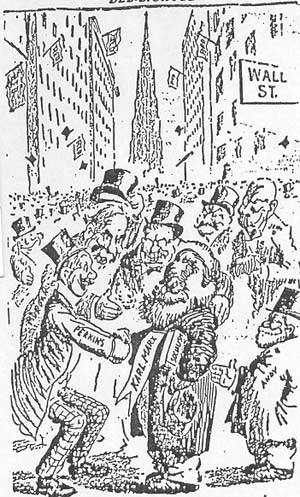I'm going to read the work of the academic Prof Anthony Sutton and share some of his insights and factual information in this thread
In the 1970's he wrote a trilogy of books that looked at the role that the american financial elite played in funding various events in history
First of all they funded the 1917 bolshevik revolution which saw 1.7 million political opponents of the bolsheviks murdered and many tens of millions of others indirectly killed through collectivisation of farming and the gulag prison system
Soon after this the nazi party came into being (which was also funded by the financial elites) in the early 1920's some might say as a reaction to the events in russia but also to the communist uprisings within germany itself such as in hamburg where once again violence was deployed by the left
His work seems very poignant today as we see an aggressive strain of the left assert itself that pushes all of the planks of the financial elites agenda while simultaneously we are seeing the rise of new technologies that threaten to turn our entire societies into a giant technocratic gulag system
In the 1970's he wrote a trilogy of books that looked at the role that the american financial elite played in funding various events in history
First of all they funded the 1917 bolshevik revolution which saw 1.7 million political opponents of the bolsheviks murdered and many tens of millions of others indirectly killed through collectivisation of farming and the gulag prison system
Soon after this the nazi party came into being (which was also funded by the financial elites) in the early 1920's some might say as a reaction to the events in russia but also to the communist uprisings within germany itself such as in hamburg where once again violence was deployed by the left
His work seems very poignant today as we see an aggressive strain of the left assert itself that pushes all of the planks of the financial elites agenda while simultaneously we are seeing the rise of new technologies that threaten to turn our entire societies into a giant technocratic gulag system


